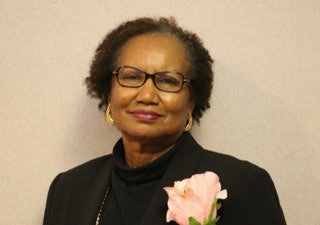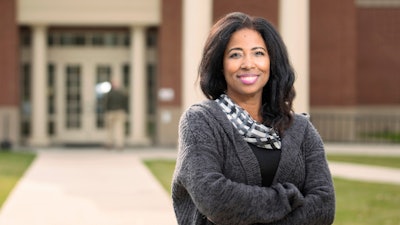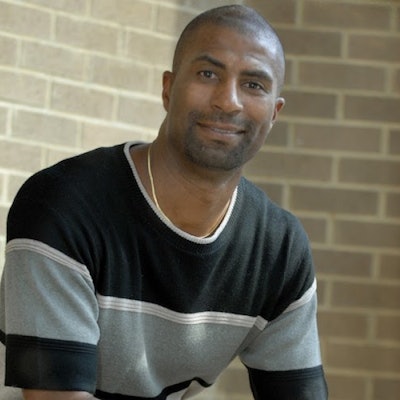 Dr. Lucy Reuben
Dr. Lucy ReubenAs universities grow more diverse, economics departments continue to lag behind, especially when it comes to training and hiring Black economists.
Black undergraduates are less likely to graduate with a bachelor’s degree in economics compared to their White counterparts, according to a 2019 report in the Journal of Economic Education by Swarthmore College’s Dr. Amanda Bayer, Franklin and Betty Barr Professor of Economics and David W. Wilcox, senior fellow at the Peterson Institute for Economics, titled, “The unequal distribution of economic education: A report on the race, ethnicity, and gender of economics majors at U.S. colleges and universities.”
In a 2018 National Economic Association address, Dr. Rhonda V. Sharpe — founder and president of the Women’s Institute for Science, Equity and Race — pointed out that the number of Black women graduating with bachelor’s degrees in economics stayed stagnant from 1996 to 2015, only increasing by about 1%. For Black men, the number of economics undergraduate degrees jumped by 47%.
Yet, despite gains for Black men, most Ph.D.-granting economics departments have no Black faculty. Sharpe’s research with University of New Orleans Economics Professor Gregory N. Price reveals that, across 127 economics departments, the number of Black economists hired, 47, didn’t change from 1996 to 2015.
“In general, the track record of all (colleges and universities) in the USA that confer doctorates in economics is vulgar,” they write, “as over the past 51 years, and perhaps even longer, the typical Ph.D.-granting economics department has had no Black Americans on its faculty.”
The scant faculty who are hired often wrestle with the climate of their departments. A survey by the American Economic Association found that only about 17% of Black economists felt people of their race were “respected in the field” compared to 82% of White economists.
The problem: A leaky pipeline
Black economists report barriers throughout the pipeline to academic positions.
For one thing, economics curricula suffer from a lack of cultural relevance, says Dr. Nina Banks, an associate professor of economics at Bucknell University and a member of the board of directors for the National Economic Association.
 Dr. Nina Banks
Dr. Nina BanksShe finds that today’s economics curricula give little attention to communities of color, and when they do, courses present them as a “problem,” portraying them as making poor economic decisions or as less productive. Meanwhile, Black students studying economics are often interested in learning about economic development for their communities, so neglecting these topics — or handling them haphazardly — leads students to drift off to other disciplines, like sociology or public policy, that more readily address racial discrimination and disparities.
Economics textbooks aren’t much better, pointed out Dr. Gary A. Hoover, executive director of the Murphy Institute and a professor of economics at Tulane University. He’s also the founding editor of the Journal of Economics, Race and Policy.
When textbooks highlight a scholar in the field, that economist is usually “an old White guy,” Hoover says. “He might even be a dead, old White guy. You’ve got to show these folks there’s a place for them in this profession.”
Banks thinks a lack of diverse perspectives in class content is “the biggest factor” in losing Black students.
“If you go into a class and the material doesn’t speak to your lived experience, then it’s not going to be attractive,” she says. “And worse, if the material denigrates the lived experience of people within their community, then it’s very much a turnoff.”
That was her experience as an economics student. She wants her students’ economics education to be more inclusive.
“It’s the reason why I decided to become an economist, because I thought I could have a role in challenging those problematic assumptions,” she says. “The economics curriculum hasn’t changed a whole lot in … many decades.”
Once a student reaches graduate school, inclusion issues compound and create a cyclical problem, a “circular firing squad,” as Hoover put it. Black graduate students who want to study economics through a racial equity lens can be discouraged by mentors who haven’t devoted time to considering the ways race intersects with their field. That blocks the kinds of scholarship that would attract Black freshmen to economics, Hoover says, and the cycle continues.
It also matters what kind of institutions economics programs recruit graduate students from, pointed out Dr. Lucy Reuben, managing director at Strategic Keys to Economic & Educational Advancement, LLC. As a professor of the practice of business administration at Duke University, she founded the PhD Pipeline Opportunity Program.
Reuben spent half her career at historically Black colleges and universities. She found that many Black students have never considered going into academia for finance or economics as a career option for them, and top economics departments fail to do outreach at colleges graduating these students, like HBCUs and other minority serving institutions.
“If [departments] sit there and wait for some doctoral student to get interested, then that’s like having a business, not telling anybody and then hoping somebody will come and ask you about it,” she says.
Finding solutions
 Dr. Gary A. Hoover
Dr. Gary A. HooverEconomics has a diversity problem at the undergraduate, graduate and faculty levels. But what can colleges and universities do about it?
Banks finds that departments sometimes try to address their lack of diversity in ways that don’t get at the heart of the problem. For example, departments often hire a number of international faculty members in economics departments, but, while that does bring valuable diversity, it isn’t a substitute for the need to hire African American economists.
“These groups continue to be excluded from the academy, even while there’s an increase in diversity,” she says.
To Hoover, there’s a simple first step leaders of economics departments can take to address a dearth of Black faculty: “Economists should actually use economics.”
“What we teach kids from day one is incentives matter,” he says. “If you incentivize people, you will get the outcome you’re looking for. The chairs of economics departments need to know “not only will your salary, your promotion, not only will the resources for grants and things, be tied to the level of scholarship of your faculty but also the level of diversity of your faculty.”
For Reuben, solving the problem ultimately comes down to recruitment.
She compares economics to college sports. In the same way institutions scout promising athletes as early as junior high or high school, she thinks economics programs should do the same for underrepresented students — both to attract them and to bolster the analytical and quantitative skills they need to flex their talents in college and graduate school.
And at the faculty level, she wants departments to make sure they’re not engaging in “tokenism,” hiring one Black professor, but bringing in a “critical mass” to encourage a wealth of “truly diverse and inclusive perspectives.”
The cost of economics departments continuing to lose potential Black students and scholars is high, she says. For one thing, it skews financial modeling that drives recommendations for policy.
For example, in the Great Recession, she thinks economists overlooked “some of the issues that led to mammoth subprime lending and people losing their homes” because of a lack of diverse perspectives.
“There are always assumptions behind every model,” she says. Economists bring “assumptions about how people behave or by what they’re impacted” and those assumptions are “limited by your understanding, experience and knowledge.”
From Hoover’s perspective, had economics departments been more inclusive earlier on, their scholarship could have been at the “forefront” of today’s most pressing racial justice conversations, but instead “we’re behind the curve.”
In losing Black talent, he thinks they’ve lost the forward-thinking research Black economists have to offer.
“It’s not just enough to want my skill set,” he says. “You’ve also got to want me.”
This article originally appeared in the February 4, 2021 edition of Diverse. Read it here


















